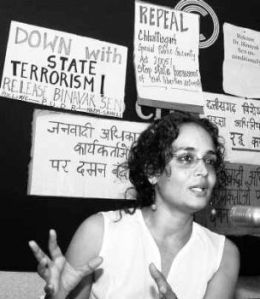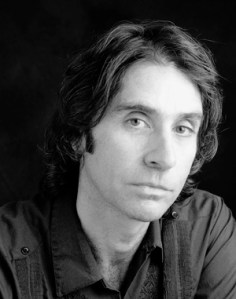Tag: Hazel Dooney
A Few of my Favourite Posts/Essays/Tweets
Picks from my weekly archive of favourite articles, blogposts, tweets and random texts and images including articles on or by Arundhati Roy, Andrew Ross, Hazel Dooney, tweeting and Tunku Varadarajan

A few days ago @Arundhati_Roy tweeted the following:
Men have become the tools of their tools. – Henry David Thoreau
There were many retweets (RTs) and responses to Roy’s update of her timeline with Thoreau’s dry observation; there was one brief rally that aptly illustrated the essence of Thoreau’s point, and being Twitter, did so with economy:
but is there any escape from that ? asked @sreecube.
certainly not with an iPhone 4 came the answering stop volley from Roy, irrevocably staunching the conversation. One-love.
Novelist and political critic Arundhati Roy recently came in for some sledgehammer criticism from a reviewer in The New Republic: The New Republic excoriates Arundhati Roy as a ‘reactionary’ tweeted @harikunzru; others also remarked on the harshness of the critique lobbed at the petite activist and writer.
Titled ‘The Reactionary’ the review of Roy’s latest book Field Notes on Democracy: Listening to Grasshoppers aimed to take apart the Indian writer’s ‘assault on democracy’, and what it called the ‘righteous hyperbole’ enlisted in her often cogent critique of the free-market capitalism-sponsored ‘democratic’ rituals we live daily. There have been many times when i’ve thought Roy has gone overboard in the tone and strategy of her critical project but she remains one of the most active voices raising questions and casting doubt on our ‘corporate present’, as Andrew Ross neatly terms the contemporary obsession with ‘enterprise’–literally the zeitgeist of buying and selling–to the detriment of true democracy.
Her Twitter bio playfully proclaims her outlook:
I’m bored with globalisation. You can see it in my face. I, alone, am Moral, lest, Moral-Less, More or Less. Amor, alas…
I’m deliberately not linking to The New Republic article in this post because i don’t see why i should promote it; you can google and find it if you really want to read it. Roy is obviously hitting her mark if the conservative mainstream US media find it necessary to use such demolition tactics. Go deh Arundhati!
In the rest of this post i’m going to share links to some excellent articles i came across last week.

First there was I Tweet, Therefore I Am, a New York Times magazine article about how tweeting changes you, how it alters the way you look at things but also the way you present yourself to the world; Twitter as performance. It reminded me of the frustration i felt some months ago when trying to persuade a friend that she needed to get on Twitter asap if she was interested in promoting the research she was doing. “Oh, i’ll just get my assistant to do it for me,” was her response. Do you send your assistant to the gym when you want to get fit i asked, after which i relapsed into silence, because i didn’t have the words to describe the range of effects Twitter has on one. Well this article makes the argument i would have tried to make, while adding several insights really worth sharing. Read it if you’re interested in exploring the new ‘ways we live now’ (or the way some of us live now, i should hastily add, having no desire to incur Arundhati Roy’s wrath here).
Then, if you don’t know him already, let me introduce you to Tunku Varadarajan, who writes for The Daily Beast. “What Does Julian Assange Want?” asks @Tunku inviting us to ‘shower the attention-craving, vainglorious “truth-seeker” with our contempt’. According to Tunku “Assange is the founder and prime mover of WikiLeaks, a shadowy, show-offy little outfit that last week unloaded into the public domain vast quantities of classified American military intelligence stolen from the vaults of the war in Afghanistan.”

In intent and tactic the article is trying to do just what the New Republic critic attempted with Arundhati Roy. It’s just that Tunku is far more adept at it, and ultimately more convincing i think:
These latest leaks weren’t, of course, Assange’s debut on the world stage. This episode was preceded by “Collateral Murder,” his own Breitbart Moment, when he infamously edited the leaked video of a gunship attack by U.S. forces in Iraq to make it appear more damnable. How is that different from the editing, by Andrew Breitbart, of the clip of the lady from the U.S. Department of Agriculture at the NAACP meeting? The New York Times wouldn’t touch anything Breitbart was peddling, but it gave Assange, who professes not to know where these documents came from, the full Pentagon Papers treatment.
In What’s the big deal about Blogging? Amit Varma, the author of India Uncut, recounts his own engagement with the medium of blogging and its impact on his life:
Over the last seven years, blogging has changed my life. As a medium, it has offered me opportunities I did not have as a mainstream journalist. It has broadened and deepened my perspectives of the world around me. It has sharpened my craft as a writer. It has introduced me to ideas and people I’d never otherwise have known.
I discovered Varma, along with most of the other Indian bloggers and Tweeters, in the wake of the attack on the Bombay Palace hotel in Mumbai a couple of years ago. He is also the editor of the opinion section of Yahoo News India where this post appeared.
In The Case for Scholarly Reporting, prolific documenter and critic of American culture, Andrew Ross, writes a really engaging account of his search for a voice and orientation as a public intellectual who has tried to marry ethnography with investigative journalism in his practice. In the process of mapping his own trajectory Ross also fluidly sketches the movement in leftwing scholarship over the last few decades and the history of the field of American Studies.
. . . it took me a long time to work off the habits of my training and find my own voice as a practitioner of scholarly reporting—the genre in which I have come to feel most comfortable. There were particular obstacles in the path. I had been trained, first and foremost, as a “reader,” alert, above all, to decoding the secret life of words. This meant that I was not a very good listener, especially to the spoken testimony of others.
By the way Andrew has written about Jamaican culture and music in his 1998 essay “Mr. Reggae DJ, Meet the International Monetary Fund in which he describes reggae as “the sound of cultural justice worldwide”. The essay documents the rise of ‘cultural’ reggae, and speculates on its emergence at that particular moment. In the process he disproves Ian Boyne’s thesis that it is a clutch of star-struck University of the West Indies academics who’ irresponsibly’ promote dancehall and DJs by focusing benevolent analytical attention on them. But more on all that in a post on the subject at some later date.
In a really good post on copyright, new media and artists’ rights blogger Barney Davey republishes a blogpost by Australian artist Hazel Dooney, one of the most outspoken writers i’ve come across. Dooney who blogs frankly about her life as a successful artist operating without a backing gallery, her fragile psychological states, her admission to a medical facility and her escape from it has useful knowledge to impart on how and when to assert one’s copyright in a world mediated by the internet. As Davey says:
I believe what Dooney is stressing is important and that we cannot avoid assessing the reality of how digital media and our interconnectedness truly have changed everything. What was will never be again. Facing what is and making it work for you is the only reality and only way to make headway in the shifting paradigms we face. Sitting still is not the answer. The famous Will Rogers saying hold’s up well here. “Even if you are on the right track, you will get run over if you just sit there.”
And finally a really funny one: 5 things you should know before dating a journalist:
We don’t take shit from anyone, so don’t lie to us or give a load of bullshit. We spend all day separating fact from fiction, listening to PR cronies and dealing with slimy politicians. If you make us do the same with you, you’re just gonna piss us off. And don’t think we’ll be quiet about it. We’ll respond with the vengeance of an Op-Ed page railing against society’s injustices — and we’ll enjoy doing it.
Just tell us the truth. We can handle it.
Hope you enjoy these picks from my weekly archive of favourite articles, blogposts, tweets and random texts and images.




